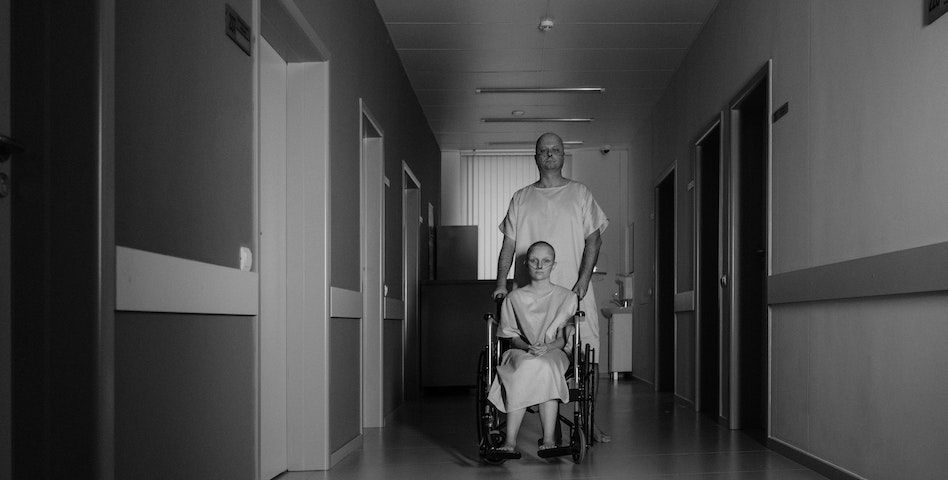Understanding the Psychology of Patients Facing Illness
In this blog, we'll delve into the psychology of patients undergoing illnesses, exploring the various emotional and mental aspects they experience during their health battles.

Facing an illness is a challenging journey that goes beyond the physical aspects of the condition. The psychological and emotional impact of illness can be profound, influencing a patient's outlook, coping strategies, and overall well-being. In this blog, we'll delve into the psychology of patients undergoing illnesses, exploring the various emotional and mental aspects they experience during their health battles.

The Initial Shock: Denial and Disbelief
For many patients, the journey begins with the initial diagnosis, a moment that often shatters the world as they know it. The emotional response to hearing the news of a serious illness varies widely, but many experience shock and disbelief. It can be challenging to accept that one's life has taken an unexpected turn, and denial is a common defense mechanism.
Fear and Anxiety: Wrestling with Uncertainty
As the reality of the illness sets in, patients often grapple with fear and anxiety. The unknown aspects of their condition, potential treatments, and the implications for their future can be overwhelming. The fear of pain, suffering, or the possibility of death can lead to high levels of anxiety. Patients may worry not only about their own well-being but also the impact their illness will have on their loved ones.
Grief and Loss: Mourning a Changed Life
Illness can bring a sense of loss, even if it's not accompanied by the physical loss of life. Patients may grieve the life they once had or the life they had envisioned for the future. The loss of physical abilities, independence, or the ability to engage in previously enjoyed activities can be deeply distressing.
Anger and Resentment: Battling the Unfairness
Patients often experience anger and resentment as they confront the unfairness of their situation. They might question why they're the ones facing illness, particularly if they've led a healthy lifestyle. These emotions can be directed at healthcare providers, family members, or even at themselves.
Coping Mechanisms: Adapting to a New Reality
While negative emotions are a natural part of the process, patients also develop coping mechanisms to adapt to their new reality. This can include seeking information about their condition, connecting with support groups, or finding solace in spirituality. Coping mechanisms are as unique as the individuals who use them, and they play a crucial role in helping patients regain a sense of control and hope.
Resilience and Positivity: The Power of Mindset
Some patients demonstrate remarkable resilience and positivity in the face of illness. They choose to focus on their strengths and the opportunities that may arise from their situation. Maintaining a positive mindset can be a powerful force in their healing journey and can impact their physical well-being.
Depression and Isolation: The Weight of Loneliness
On the flip side, some patients experience depression and isolation. The constant battle with illness, coupled with the physical and emotional toll it takes, can lead to a deep sense of sadness and loneliness. Patients may withdraw from social interactions and struggle to find joy in everyday life.

The Role of Support: The Importance of a Strong Network
Support from family, friends, and healthcare professionals is a pivotal element in a patient's psychological journey. A strong support network can provide comfort, reassurance, and assistance in navigating the challenges of illness. For many patients, the presence of loved ones is a source of motivation and resilience.
Hope and Healing: Finding Light in the Darkness
Amidst the emotional turmoil, hope remains a beacon of light. Hope for recovery, hope for relief from suffering, and hope for a brighter future can be powerful motivators. The belief that healing is possible, even in the face of adversity, can fuel a patient's determination.
The Journey of Acceptance: Navigating the New Normal
In time, many patients embark on a journey of acceptance. They come to terms with their condition, acknowledge their emotions, and find ways to live fully in their new normal. This journey is highly individual, with each patient forging their path.
As a patient, Zocdoc is your ally! It's your go-to platform where every type of patient can discover every type of care, with comprehensive provider and treatment options, cost, and quality information. Zocdoc empowers patients to keep and access their complete medical history, facilitating interactions with their dedicated care team of doctors and nurses.

In conclusion, the psychology of a patient undergoing illness is a complex and deeply personal experience. It encompasses a range of emotions, coping strategies, and psychological processes, all of which play a critical role in their healing journey. Understanding the psychological aspects of illness is essential not only for patients but also for their caregivers and healthcare providers. It fosters empathy, effective support, and a more holistic approach to healthcare that addresses the emotional and mental well-being of patients alongside their physical health.